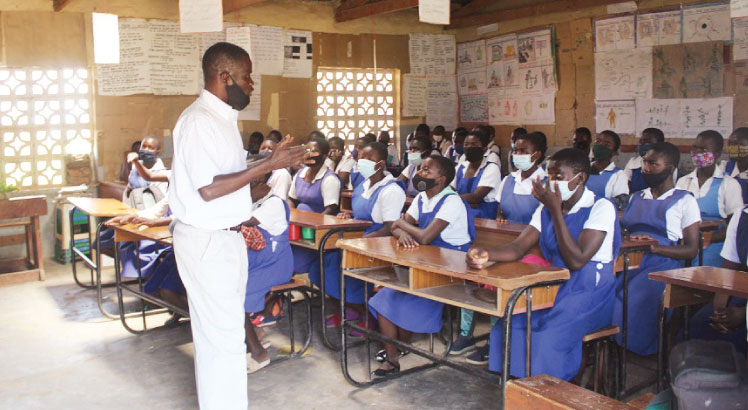Ed Note: Breast cancer awareness
October has been set aside as a month for breast cancer awareness campaign. It is a month that naturally celebrates our mothers, grandmothers, sisters, nieces and aunts who have survived an otherwise death sentence in the name of cancer. It is also a month that should uplift the spirits of those currently undergoing treatment. It is a painful process, but not to the extent of losing hope. If others have been through it, we all can make it through. All we need is the faith and positive thinking.
This is the time for soul searching on when to go for screening and make personal contributions to the battle against breast cancer. It is a time for government, civil society groupings, Parliamentarians, non-governmental organisations (NGOs), the media and the entire nation to stand up together and interrogate the health system on provisions in dealing with this cancer. It is also a time when we provoke debate on strides made and implore a change of strategy where need be.
The burden of any disease cannot be overemphasiSed. Lives are put on hold as careers get affected. It is not a burden that can be shouldered by patients alone, but the nation at large. Supports can be placed in form of adequate responsive mechanisms as well as preventatives. Access to treatment and diagnosis should no longer be about privileges or favouritism. It should not be about statuses.
Going through surgeries, chemotherapy, radiotherapy and mastectomy (breast removals) at times, clearly, is no small hill to climb. Everyone concerned carries a fair share of the disease once in a family at various levels of support and care.
Going through statistics, Malawi ranks number 177 on the world map in terms of breast cancer related deaths at a rate of 7.81 per 100 000, according to the World Health Organisation (WHO) 2010 data.
Breast cancer was the most commonly diagnosed cancer and the second leading cause of cancer deaths among women in 2008 in Africa. Southern Africa women have the highest breast cancer incidence rates of all African regions, in part because of a higher prevalence of reproductive risk factors for breast cancer, according towww.ghdonline.org
There is more that needs to be done as a country to decrease the devastation of breast cancer. Awareness should not end at who has survived, who is undergoing treatment or the sort of equipment our public hospitals have in detecting or dealing with breast cancers. Just how do we wipe the tears from those diagonised with it? How do we get to feel their pain?
Has anybody ever thought about the male involvement, in particular husbands whose wives are battling breast cancer? Even though breast cancer is primarily about the woman fighting it, I believe relationships inevitably get affected and strained. What sort of support do systems have for the confused spouses who are equally battling with coming to terms with the invasion to their lives? What about children, whose mother becomes sick all of a sudden and is sick more than half the times?
Do we ever consider who has survived and where she sought her treatment? Can the same be said about the poor woman in rural Malawi who cannot even afford transport to a referral hospital for a screen or check-up? Has anyone ever considered the complexity of a self-examination to an illiterate grandmother?
I do not have answers or solutions. I do not have all interrogates either. Nobody has; hence, the need to bang heads and do more.





